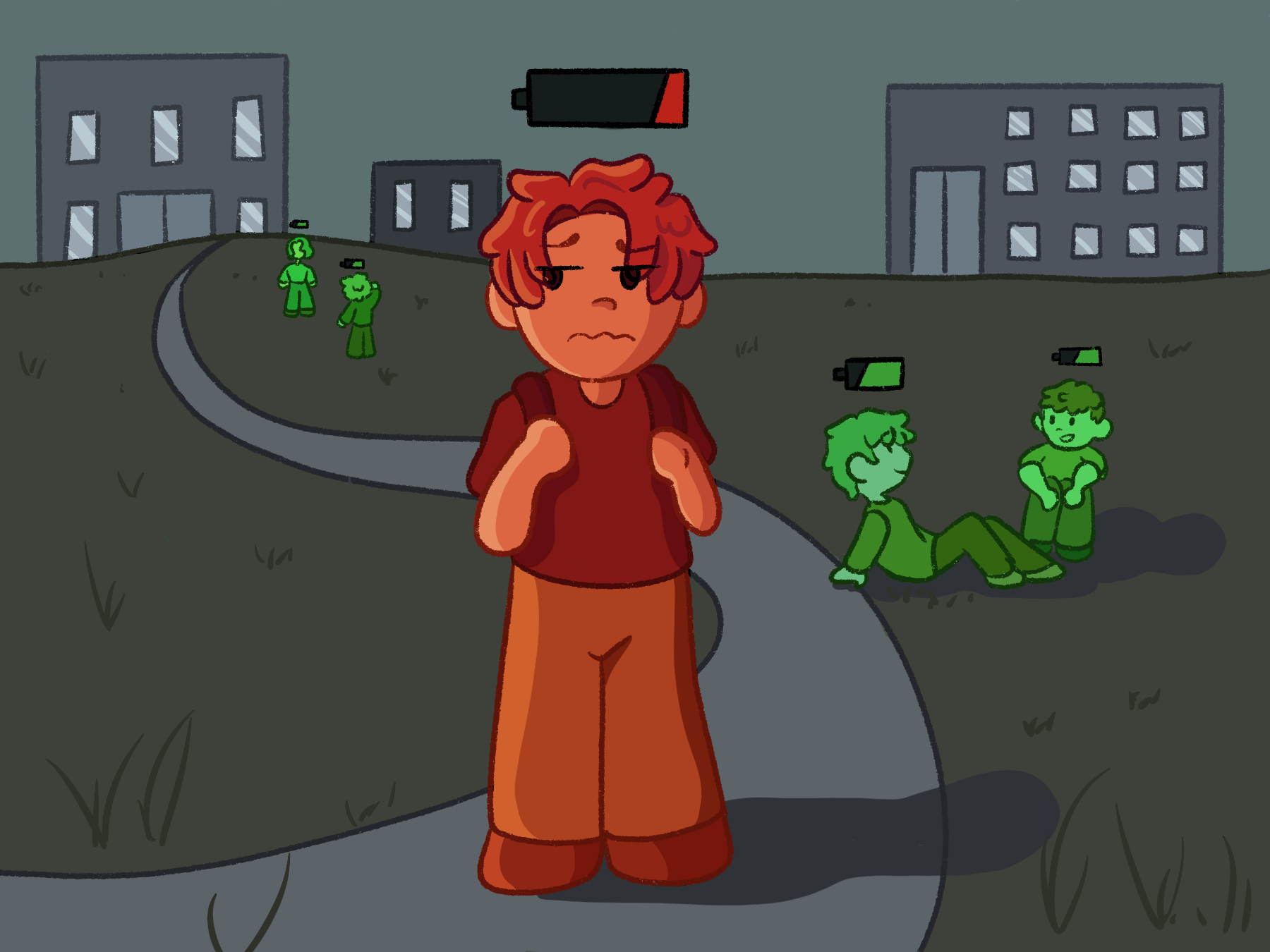College on its own may already be a scary concept for new and existing students. As an introvert in college, it presents a more significant challenge.
One has to talk to peers and administrators, give speeches in class and make small talk with others while waiting in line in the dining hall. All these things present constant nightmares for an introvert in college, as the mere thought of these situations may spark anxiety.
As surviving introverts know, finding solutions to tackle these issues may be challenging. It may take a lot of trial and error to find the best solutions, from fidget toys to practiced sentence starters to envisioning how a scenario may go to mentally prepare for it.
A few methods have come out of the ashes to redeem themselves. Some may only work for a few, but the majority are worth a shot for most.
Set Adequate Boundaries
Introverted students shouldn’t feel like they have to be at every party, event, school happening, etc.
Introverts have a short social fuse, so forcing themselves to attend social affairs after a full day of classes isn’t ideal. This is how burnout can occur.
It can lead to stressful experiences that deter them from attending future events. Besides, setting healthy boundaries is important and a good idea for everyone, whether it’s with friends, professors, or even your college roommate.
Don’t Stress Out About Missing Things
Introverts who don’t want to attend an event because of burnout should remember that it’s perfectly OK to take a break.
Fear of Missing Out (FOMO) is something that introverts suffer from more than the rest of the population. However, you aren’t obligated to leave the house every time you start feeling FOMO.
Think About Taking Online Classes
Online classes provide a much-needed barrier between introverted students and both their classmates and professors.
This space allows them to complete assignments and interact virtually with their classmates and professors, offering them the chance to succeed academically while staying within their comfort zones.
If In-Person Classes Are Required, Sit in the Front of the Classroom
Sitting in the front allows students to focus on the lecture and the professor rather than everyone else in the room.
Introverts typically need help handling large crowds, and using this tactic eliminates the sense of being in a crowded room.
Avoid the Dining Hall During the “Witching” Hour
Most students are familiar with the hours when the dining hall is overcrowded. Introverts should avoid dining during these times whenever possible.
Introverted students should try to go to the dining hall either during the first hour or the last hour it’s open.
Find and Connect with Other Introverts
Since introverts in college tend to stick out like a sore thumb, find other introverts in your classes and connect with them.
Introverted friend groups can go out for coffee, work on assignments together and most importantly, understand exactly what their fellow introverts are going through.
Get a Hobby
There are many hobbies an introvert can get into, many of which allow them to have a quiet environment and give them something to keep their minds going.
Listening to podcasts can be a great way to have a conversation. Podcasts essentially give listeners a one-sided conversation that they can respond to if they choose to do so. A few other hobbies for introverts include gardening, pottery, and cooking, all of which are excellent outlets for creativity.
Being an Introvert is OK!
No matter how intimidating it may be to be an introvert in an extrovert’s world, there are always small things you can do to make life a little easier.
Gretchen Weaver’s 11 Ways to Survive a Social Event as An Introvert provides helpful tips to give introverts peace of mind regarding socialization. From finding a pet at the party to clearing everyone’s plates after dinner to pulling a Houdini and sneaking out the door when your social battery gets low, there are many ways to survive a social event.
Sometimes, it’s just easier to be alone.
For an introvert in college, going out to parties doesn’t sound more exciting than curling up on the couch and playing “Animal Crossing.” The party might be loud and out of control, whereas staying home feels more like a controlled environment. Introverts often tend to pick the latter.
Despite the negative perception of introverts, having this personality type is not bad. According to Walden University (WU), introversion can be linked to increased creativity, strong academic performance, better health, and success in the business world.
Introverts are able to develop and perfect personal and professional skills on their own time, potentially giving themselves a leg up on the extroverts.
If you are an introvert, your personality is not something to be ashamed of; it’s something to celebrate. Give yourself some credit, because your introversion could prove to be your greatest strength.

















